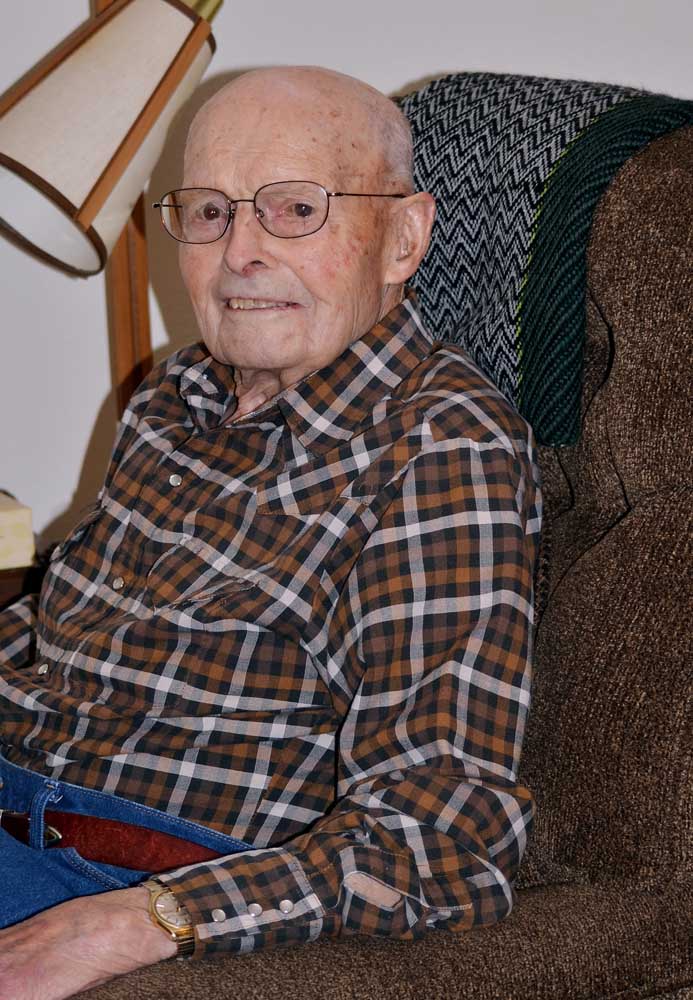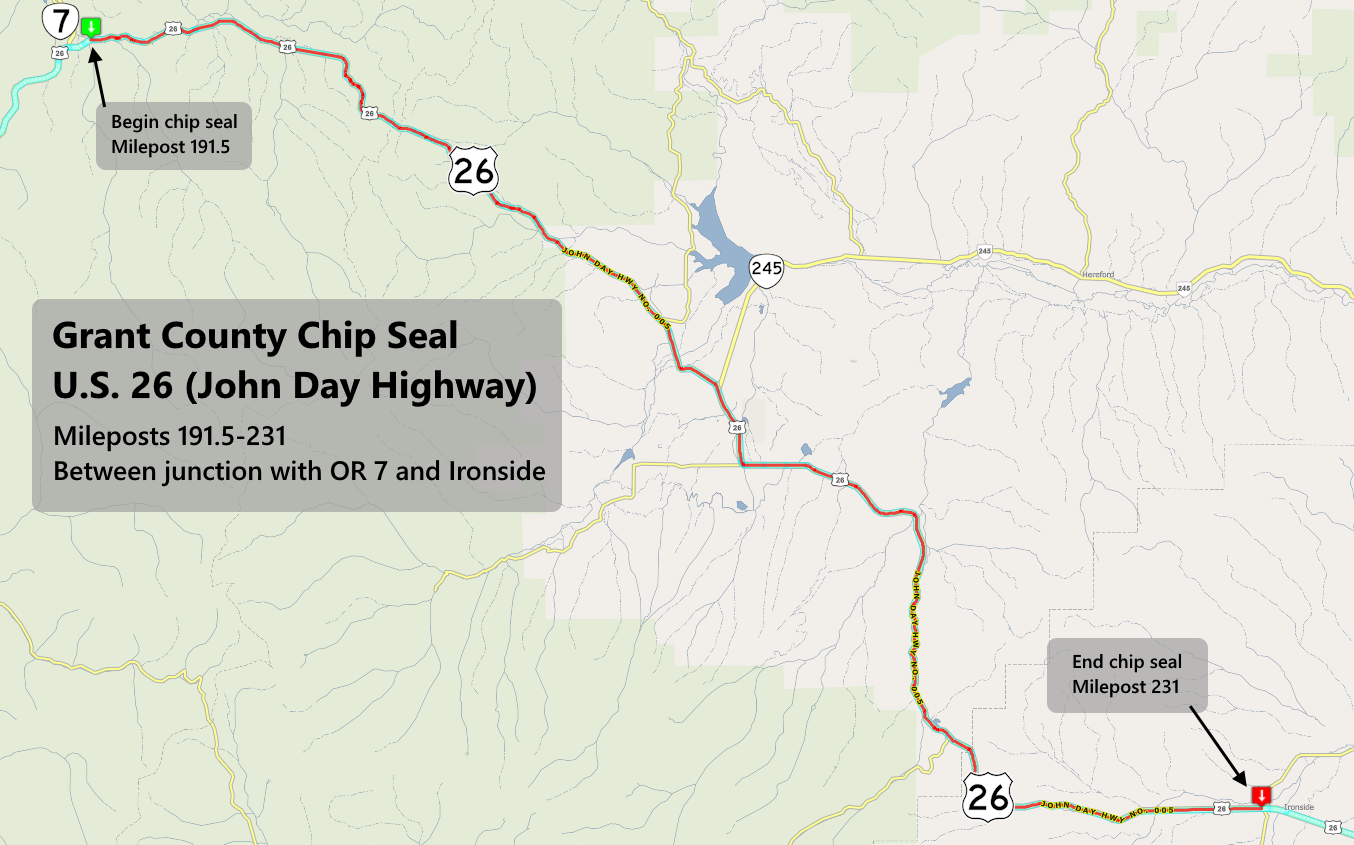Ranching in the good ol’ days
Published 10:25 am Wednesday, October 19, 2016

- Billy Drinkwater, nearing the century mark, has a story or two to tell about how life was in the good old days.
Billy Drinkwater of John Day, who will celebrate his 100th birthday in May next year, remembers the days of no electricity or indoor plumbing.
When his parents had a phone installed, their number was “five rings.”
Ranching was a big part of life for Drinkwater, who was born in Burns in 1917 and grew up on a ranch 20 miles north of Burns on the Silvies River.
His pioneer ancestors helped settle the area in Harney County.
Drinkwater said in the winter months a person, in this day and age, can drive down the highway and see a tractor in a field.
“The tractor is pulling square bales, probably with the heater on,” he said.
He recalls feeding cattle by sleigh in wintertime.
“The hay was loose, stacked hay,” he said. “It had to be pitched by hand with a pitchfork.”
All the work was completed with horses in those early years, and he still remembers his team of horses used to feed the cattle.
“When we would come to the gate, I would holler, ‘Whoa,’ at the them, and they would stop at the gate and wait until I opened it,” Drinkwater said. “Then I would speak to them, and they pulled the hay wagon through the gate. They would stop until I got on the wagon and spoke to them.”
There were 20-24 work horses needed to help during haying season, and in the afternoon, a new set of horses would take over the work of bucking the hay.
His family’s first tractor, a John Deere, was purchased when he was in high school.
After graduating from Burns High School, Drinkwater attended Oregon State University’s agriculture school, graduating with a two-year degree.
It was there he fell in love with Francis French, and they married in 1941.
They lived on the ranch near Burns, then, about a year later, moved to Prairie City where they eventually became owners of the French Ranch, previously owned by Francis’ parents, Frank and Elsie.
The Drinkwaters ran cattle at the home ranch in winter and spring, and the cattle summered in Logan Valley.
Back in the ’40s, they had a cattle drive to Logan Valley, overnighting near the Trout Farm at Turman corrals.
“In those days, we sold cattle by contract,” he said. “We’d drive cattle from Logan Valley to Seneca where the Oliver scales were,” and this would determine the price.
From there, the cattle were loaded on the train that traveled from Seneca to Crane and Vale. The livestock then traveled from Ontario to Portland.
In Portland, buyers would bid on cattle in different stockyards, purchasing a “lot” of cattle, he said.
Billy and Francis raised their four children, Ronny, Jay, Jean and Jerry, in Prairie City.
The children attended Riverside School, a two-room schoolhouse managed by teacher Betty Stanbro, who owned a Prairie City ranch with her husband, Irving.
Francis died of cancer in 1960, and Billy married Betty Bogue in 1963.
Also widowed, Betty and her two children, John and Judy, combined with Billy and his children.
The family was self-sustained, growing a garden, slaughtering pigs and cows and selling cream at the local creamery.
“I’ve always thought that the ranch was a good place to raise a family because they learned how to work, and play,” Drinkwater said. “Everything we did was done as a family.”






